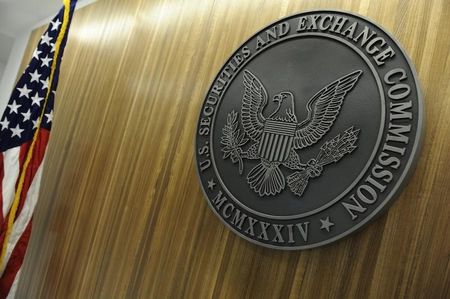FHFA Could Expose Homebuyers To Greater Counterparty Risk
The post FHFA Could Expose Homebuyers To Greater Counterparty Risk appeared on BitcoinEthereumNews.com. Opinion by: Margaret Rosenfeld, chief legal officer of Everstake The Federal Housing Finance Agency’s (FHFA) recent directive to explore how cryptocurrency might be included in single-family mortgage risk assessments is a welcome and long-overdue step. If implemented, it could allow long-term crypto holders to use their digital assets when qualifying for a mortgage without being forced to liquidate them. To realize its potential, the resulting proposals must reflect how crypto actually works. And that means recognizing the legitimacy of self-custodied digital assets. Misreading the FHFA directive Some have already misread the directive requiring crypto to be custodied on a US-regulated exchange to count. That would be a serious mistake — and contrary to the plain text of the directive. “Digital assets… must be capable of being evidenced and stored on a US-regulated, centralized exchange subject to all applicable laws.” The phrase “capable of being stored” is clear. The directive calls for assets to be verified and safely handled through US-regulated infrastructure, not for a ban on assets held elsewhere. Verifiability must be the standard, not a specific custody model. The security case for self-custody Self-custody is not a fringe activity in crypto. It is the foundation of the system’s architecture and security. Compared to centralized exchanges, well-managed self-custody can offer superior transparency, auditability and protection. Collapses of major custodians and centralized exchanges have shown how real counterparty risk can be. Properly documented, self-custodied assets can be fully auditable, as onchain records demonstrate balance and ownership. They also offer a higher level of security, since cold storage and non-custodial wallets reduce single points of failure. In addition, self-custodied assets are verifiable, with third-party tools already available to attest to wallet holdings and transaction history. If policymakers exclude these assets from mortgage underwriting simply because they aren’t exchange-custodied, they risk incentivizing less…

The post FHFA Could Expose Homebuyers To Greater Counterparty Risk appeared on BitcoinEthereumNews.com.
Opinion by: Margaret Rosenfeld, chief legal officer of Everstake The Federal Housing Finance Agency’s (FHFA) recent directive to explore how cryptocurrency might be included in single-family mortgage risk assessments is a welcome and long-overdue step. If implemented, it could allow long-term crypto holders to use their digital assets when qualifying for a mortgage without being forced to liquidate them. To realize its potential, the resulting proposals must reflect how crypto actually works. And that means recognizing the legitimacy of self-custodied digital assets. Misreading the FHFA directive Some have already misread the directive requiring crypto to be custodied on a US-regulated exchange to count. That would be a serious mistake — and contrary to the plain text of the directive. “Digital assets… must be capable of being evidenced and stored on a US-regulated, centralized exchange subject to all applicable laws.” The phrase “capable of being stored” is clear. The directive calls for assets to be verified and safely handled through US-regulated infrastructure, not for a ban on assets held elsewhere. Verifiability must be the standard, not a specific custody model. The security case for self-custody Self-custody is not a fringe activity in crypto. It is the foundation of the system’s architecture and security. Compared to centralized exchanges, well-managed self-custody can offer superior transparency, auditability and protection. Collapses of major custodians and centralized exchanges have shown how real counterparty risk can be. Properly documented, self-custodied assets can be fully auditable, as onchain records demonstrate balance and ownership. They also offer a higher level of security, since cold storage and non-custodial wallets reduce single points of failure. In addition, self-custodied assets are verifiable, with third-party tools already available to attest to wallet holdings and transaction history. If policymakers exclude these assets from mortgage underwriting simply because they aren’t exchange-custodied, they risk incentivizing less…
What's Your Reaction?








































